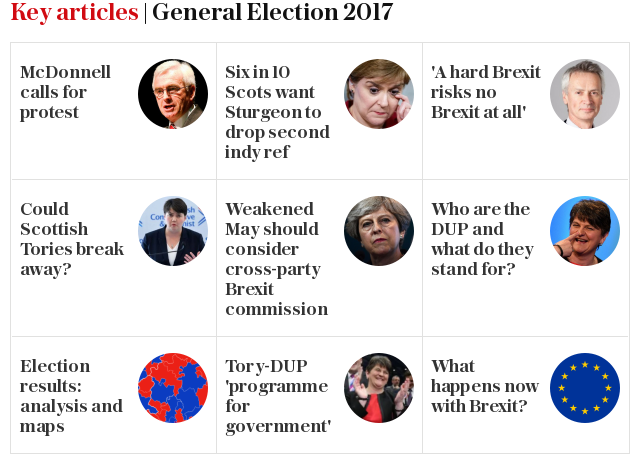What is a general election and how does it work?

After MPs approved Theresa May's plan for a snap election on June 8 in a Commons vote on Wednesday afternoon, the country will return to the ballot box three years earlier than scheduled.
The UK general election in a nutshell
First past the post is the electoral system used to elect the UK Parliament.
There are 650 constituencies in Britain – each one elects one member of parliament to the House of Commons.

Each party can nominate one candidate in each constituency.
Eligible voters have one vote each and must place a cross next to their preferred candidate.
The candidate with the largest number of votes is elected as the MP for that constituency.
The party with an overall majority of elected MPs can form a majority government.

If no party has an overall majority of MPs, it is called a hung Parliament. This happens when no one party has the absolute majority, i.e. more than 325 of the 650 seats.
In this case, the parties must work together to find a combination of parties to form a coalition government.
What are the main political parties in the UK?
The main parties standing for election in England, Scotland, Wales and Northern Ireland are:
Alliance Party of Northern Ireland (Northern Ireland)
Conservative Party (Tories)
Democratic Unionist Party (Northern Ireland)
Green Party (England and Wales)
Labour Party
Liberal Democrat Party
Plaid Cymru (Wales)
Scottish Green Party
Scottish National Party
Sinn Féin (Northern Ireland)
Social Democrat & Labour Party (Northern Ireland)
UK Independence Party (UKIP)
Ulster Unionist Party (Northern Ireland)
When will the general election take place after this one?
A 2017 general election means that the subsequent election is now due in 2022.
The Fixed-term Parliaments Act, decrees that elections must take place every five years.
An election could be held at any time however, if two-thirds of MPs vote for it, as they did this time. A future government could also decide to scrap The Fixed-term Parliaments Act.

Our manifesto: Real political insight, free for 30 days.
Rely on unrivalled insight and sharp analysis from our stellar team of Westminster insiders.
Join the most trusted voice in politics. Follow Election 2017 with Telegraph Premium.
Start your no obligation, 30 day free trial today.

 Yahoo News
Yahoo News 
